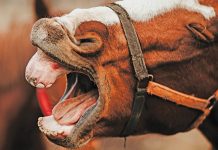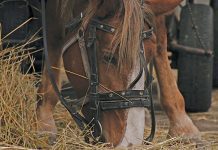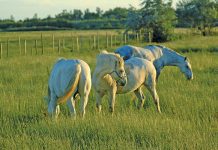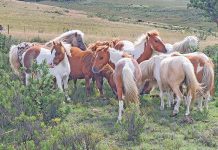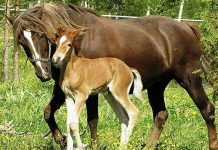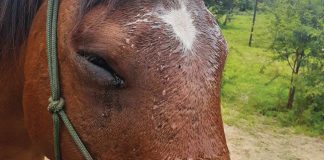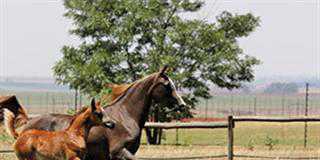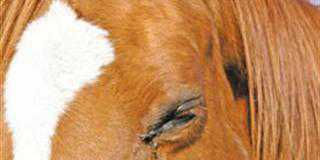
Photo: Dr Mac
Granulation is the process whereby new tissue covers a wound. The tissue contains blood-vessels and fibrin that, in a normal wound, is used as a sort of scaffolding for macrophages to remove dead tissue and fibroblasts to pull the wound slowly together so that it becomes smaller.
Over-granulation in horses is known as ‘proud flesh’. Google this condition and you’ll come across a wide range of treatments – a sign of how difficult it is to solve the problem. I strongly advise horse owners to stay far away from treatments where fantastic claims are made but the ingredients are ‘secret’.
Successful treatment lies in understanding the wound healing process and why ‘proud flesh’ grows. Normally, a small wound in a horse will heal in 10 to 14 days. It takes about the same time if a large wound is successfully sutured by a vet. However, a wound on a horse’s leg may lack the blood supply needed for rapid healing. Also, if it is close to a joint, there may be too much movement. And if a large piece of skin is missing, it may be impossible to get the sides together.
Three stages
Wound healing takes place in three stages: inflammation, proliferation and maturation.
Inflammation
This occurs straight after injury and lasts about five days. The vessels constrict to stop the bleeding and a clot forms, which becomes a scab. Serum may leak from the wound, attracting flies, so the wound must be kept covered. Unfortunately, inflammation leads to itchiness and horses often tear off the bandage. A well-stitched wound should survive this. In other cases, constant bothering by the horse can cause a cut to become an open wound.
Proliferation
This follows as the body seeks to fill the open space. Excessive granulation results in proud flesh – a red cauliflower-like, spongy tissue that projects above the wound surface.
Maturation
Normally, the bumpy red tissue eventually disappears. The wound becomes smoother and grows smaller from the edges.
Prevention
One of the best ways of preventing proud flesh in open wounds is to use polyurethane foam Ligasano bandages from the start (visit www.ligasano-sa.co.za). If this is impossible, as when the wound is on a joint (see picture), use ‘proud flesh powder’, a mixture of charcoal and copper sulphate. F10 wound spray with cypermethrin has also shown itself to be successful in reducing over-granulation in open wounds.
Keep clean!
Whichever of these treatments you use, wipe the wound carefully, clean daily, and apply Vaseline around the edges to keep them moist.

